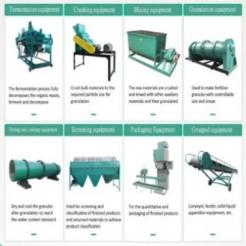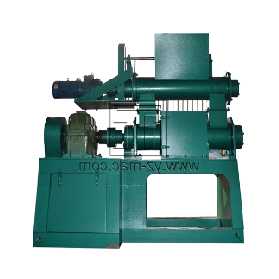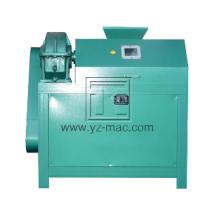Compost blender machine
A compost blender machine, also known as a compost mixing machine or compost turner, is a specialized equipment used to mix and blend compost materials. It plays a crucial role in the composting process by ensuring proper aeration, moisture distribution, and the uniform blending of organic materials. Here are the key features and benefits of compost blender machines:
Efficient Mixing and Blending: Compost blender machines are designed to thoroughly mix and blend organic materials in the composting process. They incorporate rotating drums, paddles, or augers that gently agitate the compost, ensuring the even distribution of nutrients, microorganisms, and moisture throughout the mixture. Efficient mixing and blending promote optimal decomposition and enhance the composting process.
Aeration and Oxygenation: Proper aeration is vital for the composting process as it facilitates the growth of aerobic microorganisms that break down organic matter. Compost blender machines help create an oxygen-rich environment within the compost pile by incorporating mechanisms that turn or agitate the materials. This promotes aerobic decomposition and minimizes the risk of anaerobic conditions that can lead to unpleasant odors or incomplete composting.
Moisture Distribution: Maintaining the appropriate moisture level is crucial for successful composting. Compost blender machines aid in the distribution of moisture throughout the compost pile, preventing dry spots or excessive moisture accumulation. Even moisture distribution ensures consistent decomposition rates and microbial activity, leading to a more balanced and homogenous compost product.
Temperature Regulation: Compost blender machines contribute to temperature regulation during the composting process. Proper blending and mixing help distribute heat generated by microbial activity, ensuring that the compost pile reaches and maintains the optimal temperature range for efficient decomposition. This facilitates the breakdown of organic matter and the destruction of pathogens or weed seeds.
Time and Labor Efficiency: Compost blender machines significantly reduce the time and labor required for manual turning or mixing of compost piles. They automate the blending process, allowing operators to mix large volumes of compost materials efficiently. This leads to time savings and increased productivity, making compost production more cost-effective and scalable.
Homogeneous Compost Quality: By ensuring uniform blending and mixing, compost blender machines help create a consistent and homogeneous compost product. Uniform distribution of organic materials, nutrients, and moisture results in compost with balanced nutrient content and microbial activity. Homogeneous compost is desirable for various applications, including agriculture, horticulture, and landscaping.
Reduced Odor and Pathogen Risks: Effective mixing and aeration provided by compost blender machines help mitigate odor issues associated with anaerobic decomposition. By promoting aerobic conditions, these machines reduce the risk of odor generation and enhance the destruction of pathogens or weed seeds, resulting in safer and more pleasant compost.
Scalability and Flexibility: Compost blender machines are available in various sizes and configurations to accommodate different composting scales and requirements. Whether for small-scale operations or large commercial facilities, these machines offer scalability and flexibility, allowing businesses to adapt their composting processes to changing needs and volumes.
Compost blender machines are essential tools in the composting process, enabling efficient mixing, aeration, and moisture distribution. Their benefits include improved compost quality, time and labor savings, odor reduction, and scalability. By incorporating a compost blender machine, businesses can enhance their composting operations, produce high-quality compost, and contribute to sustainable waste management practices.








